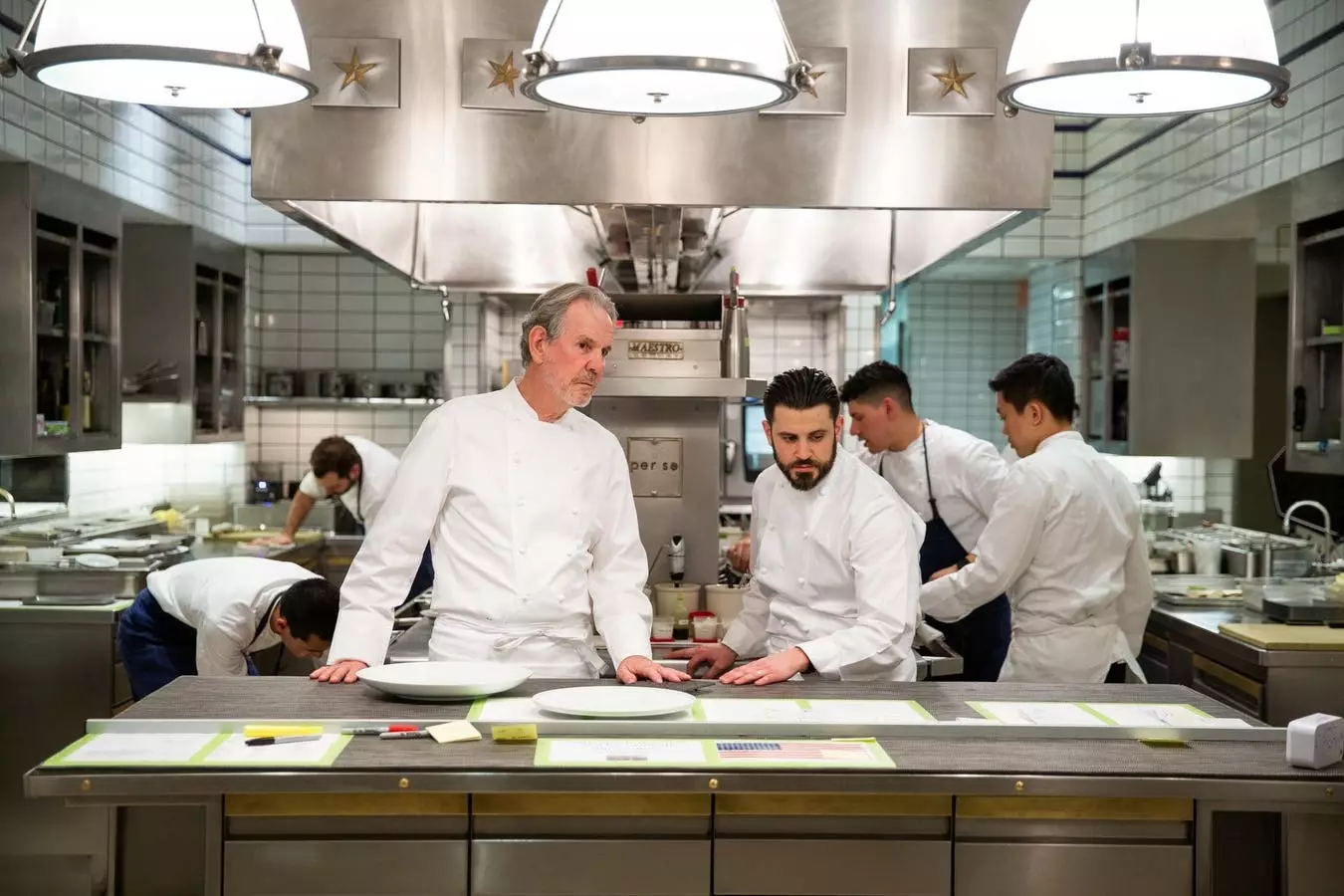Nestled atop the Deutsche Bank Center in New York City’s Columbus Circle sits Per Se, an icon of fine dining that has continuously drawn attention since its inception in 2004. At the helm is Thomas Keller, the celebrated chef and founder of The Thomas Keller Restaurant Group (TKRG). The journey of Per Se began with overwhelming praise from critics, including Frank Bruni of The New York Times, and has persisted in garnering accolades, such as three Michelin stars, a testament to its culinary excellence. However, this prestigious recognition has not insulated the restaurant from the evolving perceptions of both critics and patrons.
Despite its storied past, recent critiques highlight a troubling disconnect—a sense of elitism tinged by high prices and an ambiance that some consider antiquated. The Chef’s Tasting menu, priced at $925 per person, raises eyebrows and questions of accessibility. At a time when the culinary landscape is becoming increasingly inclusive, Per Se’s approach has drawn scrutiny as being mismatched with contemporary dining expectations. Thus, while it remains a jewel in the crown of New York’s gastronomic scene, it teeters on the edge of being out of reach for many.
A Culture of Loyalty Amidst Challenges
One notable aspect of Per Se is its remarkably low employee turnover rate, especially in an industry notorious for high attrition. With a significant portion of its 112-strong team having served for over five years, Per Se has cultivated an environment that fosters loyalty and growth. This stands in stark contrast to the larger trends in the restaurant industry, which averages nearly 80% turnover due to limited opportunities for advancement, inadequate benefits, and a lack of recognition.
Kimberly Suzuka’s journey at Per Se showcases this culture of mentorship and development. Starting as the lead host and eventually transitioning to a specially created position as guest relations manager, Suzuka credits the restaurant’s supportive environment for her professional advancement. Such personal narratives are spoken in the halls of Per Se, where dedication is rewarded and ambition is cultivated.
Similarly, chef Elaine Smyth’s ascent from chef de partie to executive pastry chef underscores the institution’s commitment to nurturing talent. Mentorship within the kitchen, particularly from seasoned chefs, fosters an atmosphere where employees are encouraged to ask questions, learn, and grow organically. The provision of experiential scholarships that allow staff to expand their culinary horizons further signifies TKRG’s commitment to employee development—not just as workers, but as professionals in their own right.
Culinary Artistry and Collaboration
The daily rhythm of Per Se is marked by an unwavering dedication to the craft of cooking. With menus that change daily based on the season’s bounty, the kitchen operates like a well-oiled machine where collaboration reigns supreme. Chefs meticulously plan each dish, discussing flavor profiles and innovative techniques. This approach not only ensures consistency but also enhances the overall dining experience.
This collaborative spirit extends beyond the kitchen. Regular interactions with vendors allow the culinary team to learn directly from the sources of their ingredients. These sessions deepen their appreciation for the complexities behind each product, creating a richer narrative that translates into the dining experience. Whether it’s tasting a new truffle or learning about the nuances of a particular wine, these connections help foster a cultivated understanding—an essential trait for chefs passionate about their craft.
In an even broader context, this commitment to excellence has borne fruit: Per Se has served as a launching pad for numerous culinary talents who have gone on to make their mark in the industry. Alumni of the restaurant have opened celebrated establishments that challenge the traditional fine dining model, transcending to new heights of creative expression while pushing culinary boundaries.
The Legacy of High Standards
Underlying Per Se’s operational ethos is a set of rigorous standards championed by Chef Keller. Signs throughout the kitchen, highlighting a “Sense of Urgency” and the meaning of “finesse,” serve as constant reminders of the excellence to which the team aspires. While the high standards may create an intense working environment, they simultaneously instill a sense of purpose and direction, pushing each staff member to excel.
Sandra Bohlsen, the restaurant’s general manager, embodies this culture, admitting that her journey has not been without challenges. The pressure to uphold a legacy of remarkable service and culinary originality can be daunting. However, within these challenges lie opportunities for growth and self-discovery, be it through mentoring younger chefs or continuously refining their craft.
Per Se thus stands not only as a restaurant but as a beacon of what fine dining can represent—excellence tempered with warmth, mentorship, and an unwavering commitment to the art of cuisine. As it moves forward, the challenge will be to maintain this delicate balance, ensuring that it does not lose sight of its roots while adapting to the ever-changing landscape of the culinary world.


Leave a Reply